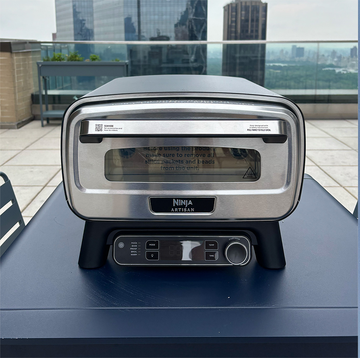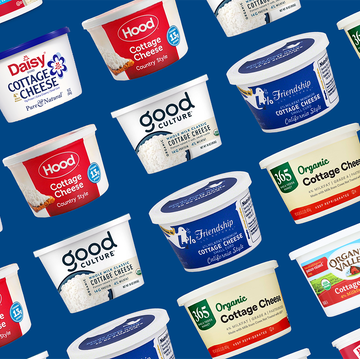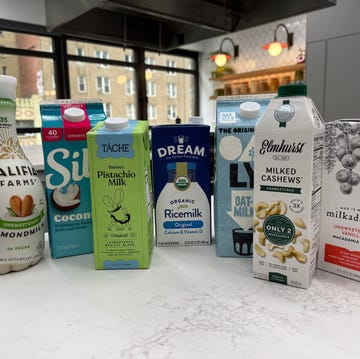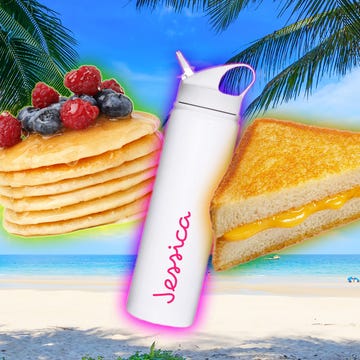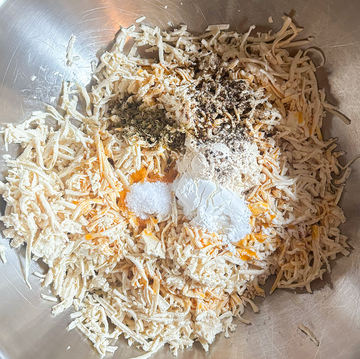According to Yahoo Finance, the cost of providing healthy meals for a family of four ranges from $131 a week for the thriftiest folks to $299 for liberal spenders. Smart shoppers use coupons to save, but studies have shown that in many cases, coupon clippers end up spending more because they buy things they don't need. A strategy to save money might be to skip buying some items altogether and finding alternatives for others.
1. Salad dressing
Bottled dressing often has more than a dozen ingredients and some have 120 calories per serving. A better idea is to skip the dressing and make a light vinaigrette at home. Many use just three or four ingredients and taste fresher. Another plus: You aren't left with bottles of half-used salad dressing filling up your refrigerator.
2. Gift credit cards
They are easy last-minute gifts, but some purchased at supermarkets come with hefty activation fees. A gift card from the grocery store itself maybe a better option. It doesn't have the same fees.
3. Greeting cards
It's painful to buy greeting cards for $3 or $4. In many cases, there's a better alternative that costs pennies. Amazon sells a 50-pack of colorful cards and envelopes for a bit more than $10. That works out to around 21 cents a card. Cards from Amazon are blank—but you can fill them with a handwritten note.
4. Name-brand spices
Even basics like cinnamon and garlic powder seem to get pricier all the time. Consumer Reports ran a blind taste test using pricey name-brand spices versus cheaper generic versions in different recipes, and asked tasters to compare them. For the most part, the tasters couldn't tell them apart. Skip the grocery store spices completely and head to the nearest health-food store where spices are sold in bulk. Buy just a small amount at a time—it's much cheaper and keeps your spices fresher.
5. Pre-arranged flower bouquets
"I find that the pre-made grocery store bouquets are often less fresh," writes Faith Durand on Apartment Therapy. "They seem to wilt faster. Also, they are usually padded with a great deal of unnecessary greenery." This doesn't mean you need to skip grocery store flowers altogether, however. Durand recommends just buying single varieties of flowers, looking for the freshest bunch with buds that aren't fully opened yet.
6. Party supplies
A trip to the dollar store is a must for party planning. You can buy just about everything you need there, from candles to cheap plastic tablecloths to helium balloons. Grocery stores offer all of these items, along with the convenience of one-stop shopping, but you'll pay two or three times more.
7. Lunchables
Calories, fat and sugar do vary depending on the choice, but some have more sugar than your child should consume all day. The healthier—and less expensive—alternative is a homemade turkey sandwich or leftover pasta.
8. Batteries
Grocery stores hit batteries with a steep markup and for good reason: When you need batteries, you often need them fast. One of the best places to get batteries is in bulk at a warehouse club. Amazon can have some pretty good deals as well.
9. Bottled water
Bottled water can cost about 1,000 times more than water from a home faucet. And sometimes, bottled water is not any safer or cleaner than tap water. Many people buy bottled water for the convenience and portability, but the environmental cost can be steep. A better alternative is to buy several stainless steel water bottles and store them in the refrigerator for on-the-go use.
10. Diapers
The grocery markup on diapers is hefty because, like with batteries, when you need them, you really need them. Warehouse clubs sell monster boxes of diapers at decent prices. You can find good deals on diapers at drugstores, too, but only when they have great sales.
This article originally appeared on KCCI 8 News.







